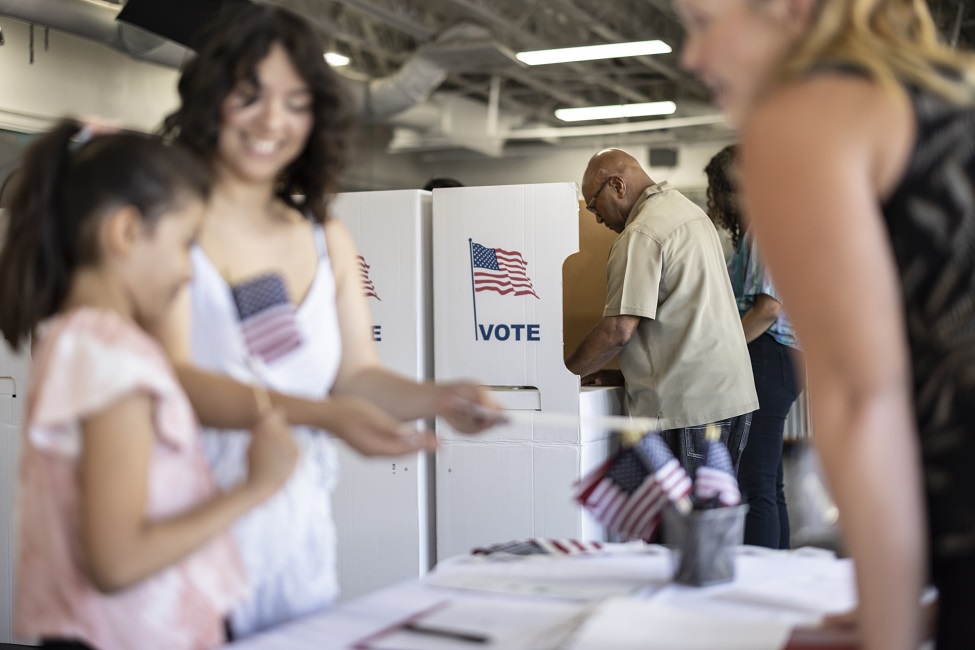Political Apathy Spreads from Parents to Adolescent Children

Study findings point to a promising new avenue of raising political participation among young voters: targeting the political attitudes of those with whom they are close, particularly their parents.
Political apathy is growing in democracies around the world. Political apathy, also known as political alienation, describes feelings of separation and disaffection, a sense of powerlessness and an indifference to politics and political institutions. A hallmark of political alienation is a refusal to vote or participate in political activities. Adolescents and young adults are no exception to these trends. In many countries in Europe and North America, the youngest voters have the lowest participation rates.
Why are new voters so apathetic about politics? Many factors are at play. However, a new study from researchers at Florida Atlantic University focused on one of the most salient: parent attitudes about politics.
The study, published in the Journal of Family Psychology , indicates that political disaffection spreads from parents to children. Specifically, parent political alienation predicted subsequent increases in adolescent child political alienation one year later for youth who described relationships with parents as warm, but not for those who described relationships with parents as distant.
Put simply, in households where parents and adolescents are close, parents transmit political apathy to their adolescent children, which may have the unfortunate consequence of contributing to low political participation among young voters.
In this study, 571 German adolescents (314 girls, 257 boys), along with their mothers and their fathers, each completed questionnaires describing their own political alienation at two time points, approximately one year apart. In addition, adolescents completed questionnaires describing their perceptions of warmth in relationships with parents. Adolescents were in grades six, eight and 10 at the outset.
Mothers and fathers did not differ in terms of influence. Both were equally important in shaping adolescent attitudes about politics. Influence was a one-way street: adolescents did not contribute to the political alienation of either parent.
The findings from this new study are important because they point to a potentially promising new avenue of raising political participation among young voters: targeting the political attitudes of those with whom they are close, particularly their parents.
“The logic is straightforward,” said Brett Laursen, Ph.D., senior author and a psychology professor in FAU’s Charles E. Schmidt College of Science. “Children who are close to their parents are more likely to identify with them and are more receptive to messages from them about politics. We listen to those we like, we engage them in dialogue, we identify with them and we emulate their behaviors.”
Political alienation reflects distrust and a lack of confidence in political systems and political figures. Political disaffection can be challenging for democracies as politically alienated citizens tend not to vote. When elections are decided by a small portion of the electorate, disaffection grows, which can further drive down turnout in a vicious cycle. It is difficult to change attitudes about politics. Many politically disaffected young adults continue to refrain from voting and political participation as they get older.
Findings from this study also are a reminder that parent influence is a double-edged sword.
“The results of our study matter because despite the rising importance of friends and peers, many forms of adolescent behavior remain highly susceptible to parent influence,” said Laursen. “We like to think of parents as positive socialization agents, and typically they are. But bad habits and bad attitudes also can spread from parents to children, and parents should be alert to this possibility. Some parents underestimate their importance. Children are watching and listening, even during late adolescence. They take cues from parents, particularly in families that are close-knit and warm. Attitudes toward politics are just another example of the many ways that parents exert a profound and lasting impact on the lives of their children.”
-FAU-
Latest News Desk
- Discovery to Display: FAU Unveils the 'Art of Science' WinnersFAU's Art of Science showcases stunning research-inspired images submitted by students, faculty and staff. Explore more than 200 entries and vote for your favorite in the People's Choice Award.
- FAU Secures $1.4 Million Grant to Save Wildlife in Florida EvergladesFAU's Charles E. Schmidt College of Science has received a U.S. Army Corps of Engineers grant to study dry-season prey in the Everglades and its impact on wading bird nesting success and ecosystem restoration.
- Gutterman Center for Holocaust and Human Rights Honors EducatorsFlorida Atlantic University's Arthur and Emalie Gutterman Center for Holocaust and Human Rights Education (CHHRE) recently hosted its annual Educator Awards Dinner at the Boca Raton Marriott at Boca Center.
- FAU College of Business to Host Boca Finance & Real Estate ConferenceFAU's College of Business will host a specialized conference and networking event to offer an inside look at the future of finance and real estate as South Florida accelerates its rise as "Wall Street South."
- FAU's CAROSEL Offers New 'Spin' on Real-Time Water Quality MonitoringFAU Harbor Branch's CAROSEL is an autonomous underwater system that tracks nutrient exchanges between sediments and water in real time, revealing impacts on water quality and ecosystem health.
- FAU Engineering Receives $1.5M to Launch Ubicquia Innovation CenterThe Ubicquia Innovation Center for Intelligent Infrastructure will drive sensor, AI and analytics innovation to digitize and monitor infrastructure across utility, municipal, commercial and industrial sectors.






